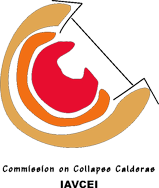About the Group
Public Description
Welcome to the Commission on Collapse Calderas
Creation of the new IAVCEI Commission on Collapse Calderas (CCC) was approved by the Executive Committee and Secretary General of IAVCEI in March 2008.
The idea to file for a commission emerged in 2005, during a workshop on Caldera Volcanism, at which the Collapse Calderas Work Group (CCWG) was formed.
The commission is currently led by:
- Adelina Geyer (CIMNE, Spain)
<a href="mailto:ageyer@cimne.upc.edu" target="_blank">ageyer@cimne.upc.edu</a>
- Valerio Acocella ( Roma Tre University)
<a href="mailto:acocella@uniroma3.it" target="_blank">acocella@uniroma3.it</a>
The commission covers a wide spectrum of research topics and fosters common interests in research on collapse calderas such as geology, geophysics, numerical and analogue modelling, magma chamber processes, hazard assessment and risk management as well as economic and environmental aspects.
The commission epitomises the spirit of the original workgroup and provides a platform for interdisciplinary interaction to solve the many outstanding questions regarding the formation of collapse calderas, their evolution and behaviour, and for knowledge transfer to a wider audience.
At the same time, there is room for incorporation of additional lines of research in the future and these are more than welcome to add their flavor to the commission.
The commission covers a wide spectrum of research topics and fosters common interests in research on collapse calderas such as geology, geophysics, numerical and analogue modelling, magma chamber processes, hazard assessment and risk management as well as economic and environmental aspects.
The commission epitomises the spirit of the original workgroup and provides a platform for interdisciplinary interaction to solve the many outstanding questions regarding the formation of collapse calderas, their evolution and behaviour, and for knowledge transfer to a wider audience.
At the same time, there is room for incorporation of additional lines of research in the future and these are more than welcome to add their flavor to the commission.
